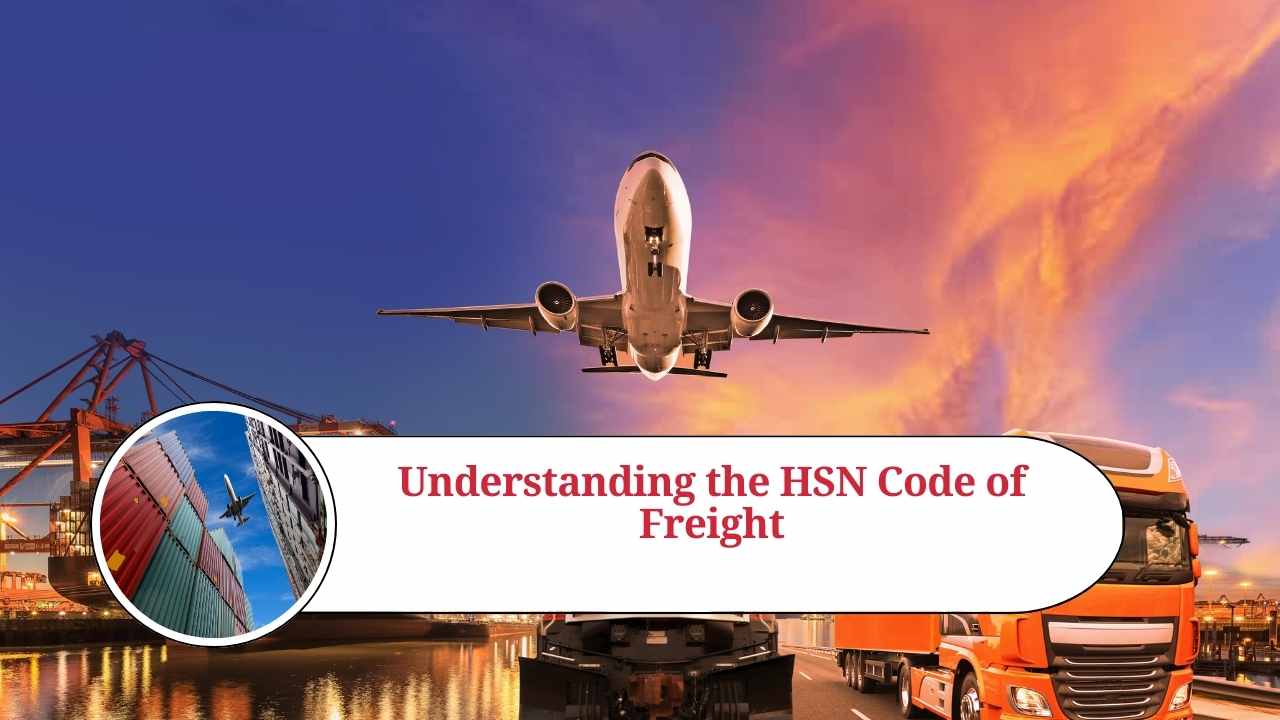In today’s world of globalized trade, the proper classification of goods and services holds paramount importance. As businesses comply with tax regulations and streamline processes, the Harmonized System of Nomenclature (HSN) forms the backbone of transactions for tracking goods internationally and domestically.
Whether you’re searching for the correct HSN code for freight or need clarity on the Asian Paints HSN Code, understanding these codes is critical for avoiding penalties and ensuring seamless invoicing.
In this comprehensive article, we’ll dive deep into understanding HSN codes, why they matter, their application for freight, and how Asian Paints—a prominent paint and decorative solutions company—leverages specific HSN codes for their products.
What Are HSN Codes?
HSN codes, or Harmonized System of Nomenclature codes, are standardized numerical codes used worldwide to classify goods and services. Introduced by the World Customs Organization (WCO), the HSN system allows businesses to easily identify products and ensure compliance with taxation norms. HSN codes are universally accepted and ensure clarity in international and domestic trade.
In India, HSN codes are widely used under the Goods and Services Tax (GST) regime. When businesses file invoices or return forms under GST, including the correct HSN code is mandatory to provide clarity on the nature of goods or services.
Importance of HSN Codes Under GST
HSN codes help governments, suppliers, buyers, and businesses streamline transactions. Key benefits include:
- Uniformity: HSN ensures that goods and services are categorized consistently worldwide, reducing discrepancies.
- Avoidance of Errors: Using the correct HSN code during invoicing helps businesses avoid penalties due to misclassification in tax filings.
- Time Efficiency: HSN codes simplify the process of identifying goods—helping customs offices and government agencies to verify taxable items faster.
- Better Compliance: Accurate classification through HSN codes facilitates greater adherence to taxation laws at every level of trade, from wholesalers to retailers.
How Freight Services Are Classified Under HSN Codes
Freight or transportation services are essential for shipping goods across regions. The correct classification of freight services under HSN codes is crucial for businesses ensuring tax compliance.
HSN Code for Freight
Under the GST framework, freight and transportation services fall under “service codes,” specifically categorized in Chapter 99 of the HSN system, which covers various services, as opposed to goods. Relevant codes for freight may include:
- 9965: Covers goods transportation services, including freight by road, rail, air, or sea.
- 9967: Covers freight-forwarding and cargo handling services.
- 9954: Includes water transport services for freight.
In India, determining the correct HSN code for freight depends on:
- The mode of transportation used (road, rail, air, or sea).
- The type of carrier.
- Applicable GST rates (ranging from 5% to 18%).
Key Considerations When Using HSN Codes for Freight
1. Understand the Mode of Transportation
- Road freight services and transportation by trucks may fall under the code 9965 with a GST rate of 5%, provided the taxpayer fulfills specific conditions.
- Air freight services typically attract higher GST rates, often 18%.
2. International vs. Domestic Freight
- HSN codes for international freight may require additional details based on customs laws.
- Domestic freight transportation is clearly classified under Indian GST regulations in Chapter 99’s service-specific codes.
3. Freight-forwarding Services
- Freight-forwarding (logistics infrastructure and planning) is categorized separately under the 9967 code.
- Invoices must reflect the precise service category.
Asian Paints Product Classification: Understanding Its HSN Code
Just like freight services require accurate codes, businesses dealing in goods such as paints and decorative products must use appropriate categorization for compliance.
Common HSN Codes for Paints
Asian Paints products fall under specific HSN codes depending on chemical composition and type:
- 3208: Paints and varnishes based on synthetic polymers or chemically modified natural polymers dissolved in non-aqueous mediums.
- 3209: Paints and varnishes using water-based mediums.
- 3210: Other paints (e.g., distempers or coatings for interior surfaces).
- 3214: Mastics and caulking compounds.
- 3907: Poly products such as enamels or binders.
GST Rates for Paints Under HSN Code
When searching for the Paints HSN Code, note that:
- Most paints attract 18% GST under Indian GST rules.
- The rate applies regardless of whether paints are water-based, synthetic polymer-based, or other categories.
- Proper classification is critical for compliance.
HSN Code Integration: Freight Services and Paints
Paint manufacturers like Asian Paints rely on freight services for domestic and international deliveries. Businesses often need to apply both:
- 9965 or corresponding freight service codes.
- 3208, 3209, or other relevant paint-specific codes.
Correct integration ensures compliance and avoids tax delays or penalties.
Why Using Correct HSN Codes Matters
1. Avoid Legal Complications
- Incorrect HSN codes can result in penalties or rejected filings.
- Misclassification can raise red flags with GST officials.
2. Better Business Practices
- Accurate coding builds trust with suppliers and customers.
- It reflects professionalism and operational transparency.
3. International Trade Compliance
- HSN codes ensure smooth customs clearance and VAT compliance for imports/exports.
Conclusion: Prioritize Accuracy When Filing HSN Codes for Freight and Asian Paints
Understanding and applying the correct HSN code for freight or Asian Paints HSN Code is essential for smooth operations.
- Freight services: Chapter 99 (services).
- Paints: Chapter 32 or 39 (goods).
Accurate classification supports tax compliance, logistics efficiency, and customer trust. Businesses should prioritize correct HSN usage to avoid penalties and streamline trade.






